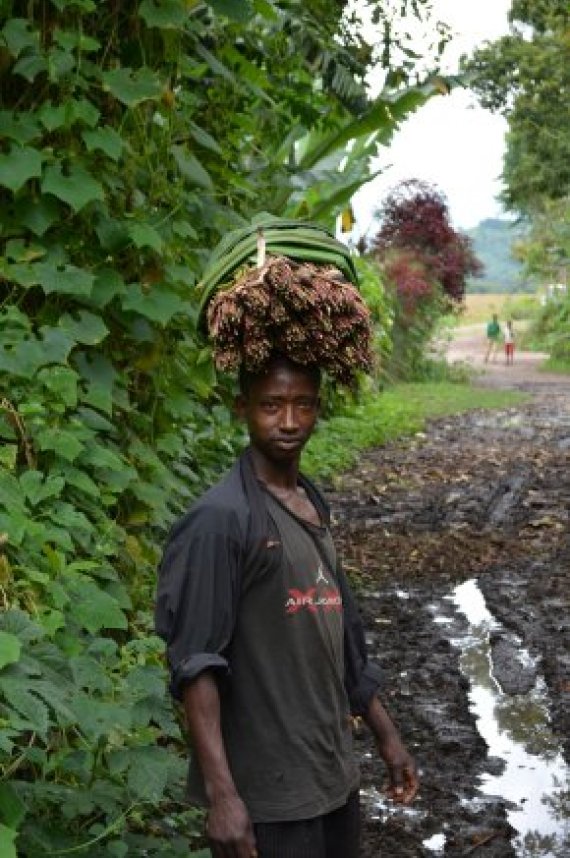Many small-scale farmers around the Ethiopian town Hawassa are currently switching from food crops to growing qat. This euphoric stimulant is two or three times more lucrative for the small farmers than growing food, and requires less labour and inputs. These conclusions were drawn by Wageningen and African PhD students after a training course in Ethiopia. The two-week course was organized by three Wageningen research schools with participants from African universities as well.
A total of 25 PhD students from 17 countries did research in the region in October. They formed four multidisciplinary teams which included agronomists, economists, ecologists, soil scientists and anthropologists. The PhD students were taught methods of system analysis to help them understand how farms work, and then they went into the field.
The shift from food production to qat is a worrying development. Farmers in the region have traditionally had mixed farms with both livestock and crop farming, but now they are being tempted by the big profits the lucrative drug brings in. This causes the food supply to go down, while the regional population is growing. Moreover, the number of local qat users is growing, leading to more and more apathy and theft among the youth.
The PhD students also thought up possible interventions for bringing the qat production to a halt. One option is for the government to stimulate coffee farming, although this cash crop is not as lucrative as qat. There are no simple solutions to the food supply issue, says supervisor Ken Giller. Qat has become Ethiopia’s third biggest export crop and there is an eager market for it in Somalia and the Middle East. The PhD students and supervisors from the Wageningen research schools stayed in Ethiopia for two weeks. They chose the country for its variety of landscapes and of farm types. The research schools organize a course in the field every two years.

